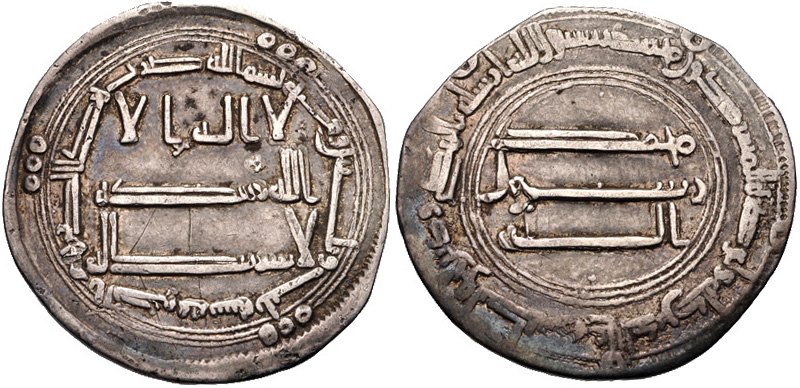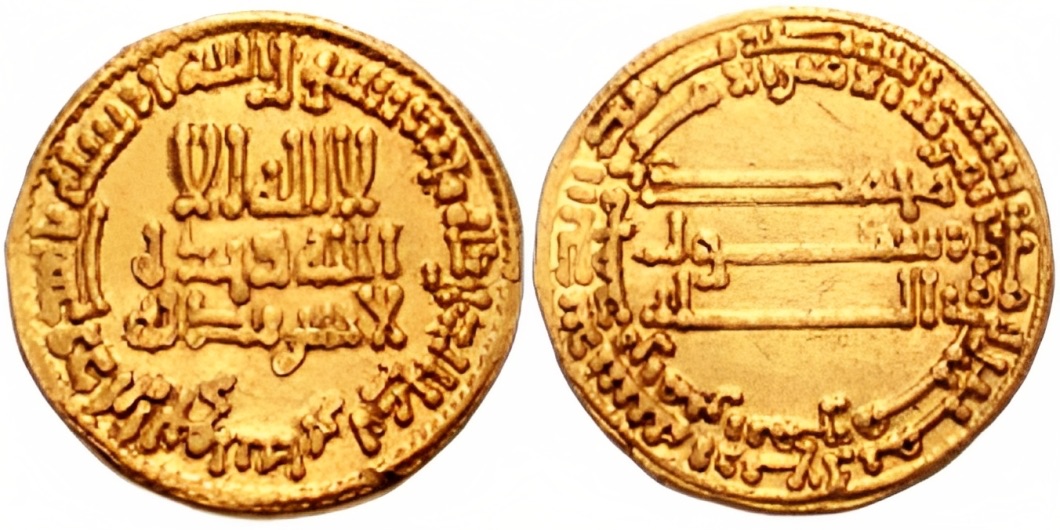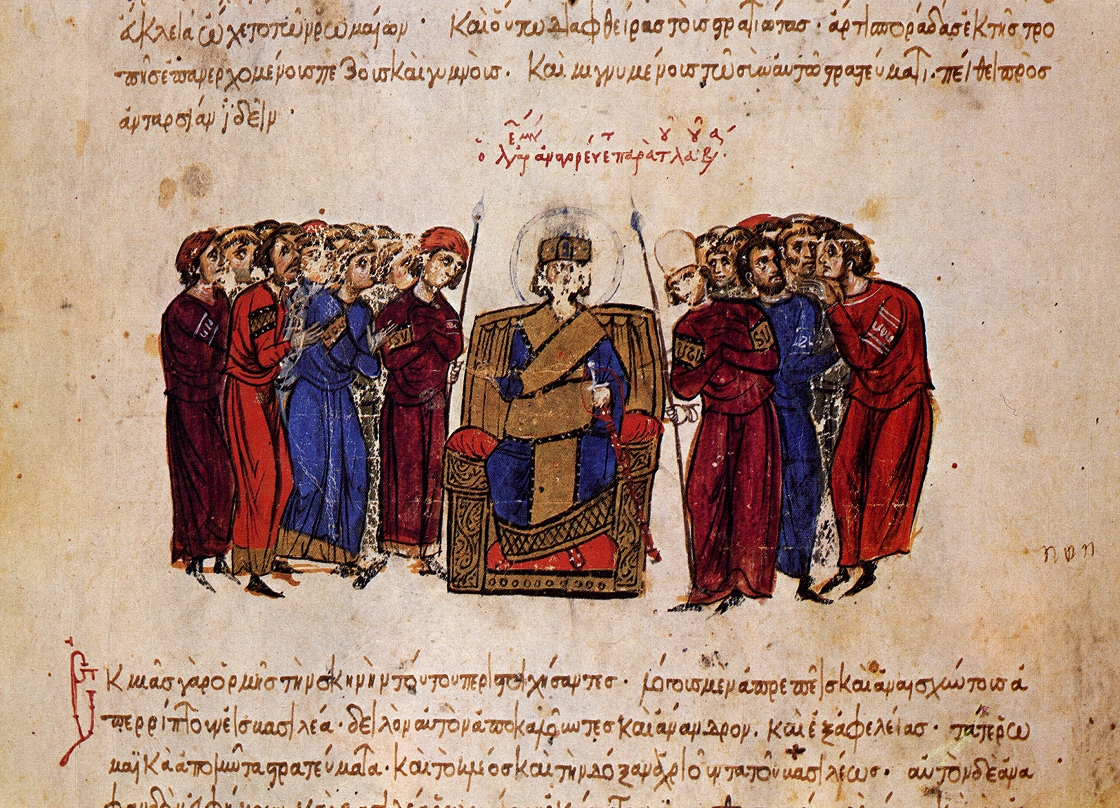|
Thabit Ibn Nasr
Thabit ibn Nasr ibn Malik al-Khuza'i () (died 813/14) was an Abbasid general and governor of the Cilician frontier zone ('' al-thughur al-Sha'miya'') with the Byzantine Empire in 808–813. Thabit was a native of Khurasan, and the grandson of Malik ibn al-Haytham al-Khuza'i, an early Abbasid follower and military leader. He was appointed as governor of the Syrian '' thughur'' (essentially comprising Cilicia, with Tarsus as its capital) in the last year of the reign of Harun al-Rashid (808/9).Crone (1980), p. 182 He organized a prisoner exchange with the Byzantines at Podandos in 808, but also led a series of raiding expeditions (''sawa'if'') against them. In one of these however, in August 812, he suffered a heavy defeat at the hands of Leo the Armenian, losing 2,000 men. From ca. 810, with the outbreak of a civil war between al-Amin and his brother al-Ma'mun Abu al-Abbas Abdallah ibn Harun al-Rashid ( ar, أبو العباس عبد الله بن هارون الرشيد, Ab ... [...More Info...] [...Related Items...] OR: [Wikipedia] [Google] [Baidu] |
Abbasid
The Abbasid Caliphate ( or ; ar, الْخِلَافَةُ الْعَبَّاسِيَّة, ') was the third caliphate to succeed the Islamic prophet Muhammad. It was founded by a dynasty descended from Muhammad's uncle, Abbas ibn Abdul-Muttalib (566–653 CE), from whom the dynasty takes its name. They ruled as caliphs for most of the caliphate from their capital in Baghdad in modern-day Iraq, after having overthrown the Umayyad Caliphate in the Abbasid Revolution of 750 CE (132 anno Hegirae, AH). The Abbasid Caliphate first centered its government in Kufa, modern-day Iraq, but in 762 the caliph Al-Mansur founded the city of Baghdad, near the ancient Babylonian Empire, Babylonian capital city of Babylon. Baghdad became the center of Science in the medieval Islamic world, science, Islamic culture, culture and List of inventions in the medieval Islamic world, invention in what became known as the Islamic Golden Age, Golden Age of Islam. This, in addition to housing several ke ... [...More Info...] [...Related Items...] OR: [Wikipedia] [Google] [Baidu] |
Fourth Fitna
The Fourth Fitna or Great Abbasid Civil War resulted from the conflict between the brothers al-Amin and al-Ma'mun over the succession to the throne of the Abbasid Caliphate. Their father, Caliph Harun al-Rashid, had named al-Amin as the first successor, but had also named al-Ma'mun as the second, with Khurasan granted to him as an appanage. Later a third son, al-Qasim, had been designated as third successor. After Harun died in 809, al-Amin succeeded him in Baghdad. Encouraged by the Baghdad court, al-Amin began trying to subvert the autonomous status of Khurasan, and al-Qasim was quickly sidelined. In response, al-Ma'mun sought the support of the provincial élites of Khurasan and made moves to assert his own autonomy. As the rift between the two brothers and their respective camps widened, al-Amin declared his own son Musa as his heir and assembled a large army. In 811, al-Amin's troops marched against Khurasan, but al-Ma'mun's general Tahir ibn Husayn defeated them in the Battle ... [...More Info...] [...Related Items...] OR: [Wikipedia] [Google] [Baidu] |
Abbasid People Of The Arab–Byzantine Wars
The Abbasid Caliphate ( or ; ar, الْخِلَافَةُ الْعَبَّاسِيَّة, ') was the third caliphate to succeed the Islamic prophet Muhammad. It was founded by a dynasty descended from Muhammad's uncle, Abbas ibn Abdul-Muttalib (566–653 CE), from whom the dynasty takes its name. They ruled as caliphs for most of the caliphate from their capital in Baghdad in modern-day Iraq, after having overthrown the Umayyad Caliphate in the Abbasid Revolution of 750 CE (132 AH). The Abbasid Caliphate first centered its government in Kufa, modern-day Iraq, but in 762 the caliph Al-Mansur founded the city of Baghdad, near the ancient Babylonian capital city of Babylon. Baghdad became the center of science, culture and invention in what became known as the Golden Age of Islam. This, in addition to housing several key academic institutions, including the House of Wisdom, as well as a multiethnic and multi-religious environment, garnered it a worldwide reputation as th ... [...More Info...] [...Related Items...] OR: [Wikipedia] [Google] [Baidu] |
Generals Of The Abbasid Caliphate
A general officer is an officer of high rank in the armies, and in some nations' air forces, space forces, and marines or naval infantry. In some usages the term "general officer" refers to a rank above colonel."general, adj. and n.". OED Online. March 2021. Oxford University Press. https://www.oed.com/view/Entry/77489?rskey=dCKrg4&result=1 (accessed May 11, 2021) The term ''general'' is used in two ways: as the generic title for all grades of general officer and as a specific rank. It originates in the 16th century, as a shortening of ''captain general'', which rank was taken from Middle French ''capitaine général''. The adjective ''general'' had been affixed to officer designations since the late medieval period to indicate relative superiority or an extended jurisdiction. Today, the title of ''general'' is known in some countries as a four-star rank. However, different countries use different systems of stars or other insignia for senior ranks. It has a NATO rank scal ... [...More Info...] [...Related Items...] OR: [Wikipedia] [Google] [Baidu] |
810s Deaths
{{Numberdis ...
81 may refer to: * 81 (number) * one of the years 81 BC, AD 81, 1981, 2081 * Nickname for the Hells Angels Motorcycle Club. "H" is the eighth letter of the alphabet, and "A" is the first. See also * * List of highways numbered A ''list'' is any set of items in a row. List or lists may also refer to: People * List (surname) Organizations * List College, an undergraduate division of the Jewish Theological Seminary of America * SC Germania List, German rugby union ... [...More Info...] [...Related Items...] OR: [Wikipedia] [Google] [Baidu] |
8th-century Births
The 8th century is the period from 701 ( DCCI) through 800 ( DCCC) in accordance with the Julian Calendar. The coast of North Africa and the Iberian Peninsula quickly came under Islamic Arab domination. The westward expansion of the Umayyad Empire was famously halted at the siege of Constantinople by the Byzantine Empire and the Battle of Tours by the Franks. The tide of Arab conquest came to an end in the middle of the 8th century.Roberts, J., '' History of the World'', Penguin, 1994. In Europe, late in the century, the Vikings, seafaring peoples from Scandinavia, begin raiding the coasts of Europe and the Mediterranean, and go on to found several important kingdoms. In Asia, the Pala Empire is founded in Bengal. The Tang dynasty reaches its pinnacle under Chinese Emperor Xuanzong. The Nara period begins in Japan. Events * Estimated century in which the poem Beowulf is composed. * Classical Maya civilization begins to decline. * The Kombumerri burial grounds are founded. * ... [...More Info...] [...Related Items...] OR: [Wikipedia] [Google] [Baidu] |
List Of Abbasid Governors Of Tarsus
Tarsus is a city in Cilicia, a region in southeastern Asia Minor (modern Turkey). The city came under Roman rule since 67 BC, until the mid-7th century, when following the Muslim conquest of the Levant control was disputed with the nascent caliphate. During the conflicts between the Byzantines and the Umayyad Caliphate, the city lay in the disputed no-man's-land between the two empires and changed hands frequently, becoming deserted and ruined in the process. In 778/9 the Abbasids undertook the first attempt to restore the city as a base of operations against Byzantium, but the work was apparently not completed. It was not until 787/8 that the city was rebuilt and resettled by Faraj ibn Sulaym al-Khadim, on the orders of Caliph Harun al-Rashid (). 3,000 Khurasanis and 2,000 Syrians (a thousand each from Antioch and al-Massisa) were given houses and land in the new fortress city. Tarsus was apparently recovered by the Byzantines soon after, at some point around the turn of the cen ... [...More Info...] [...Related Items...] OR: [Wikipedia] [Google] [Baidu] |
Nasr Ibn Hamza Ibn Malik
Nasr ( ar, نصر, meaning "Victory") or Al-Nasr or variant Al Nasr or An-Nasr or An Nasr ( ar, النصر) with the definite article Al- and An- (in Arabic) meaning "The Victory" Nasr and its variants may refer to: Places * Al Nasr, Dubai, a community in Dubai, United Arab Emirates * Al Nasr Wal Salam, also known as Al-Hasuah, city in the Abu Ghraib district of Baghdad Governorate, Iraq * Nasr City, a suburb of Cairo, Egypt * Nasar, Iran, also known as Nasr, a village in Razavi Khorasan Province, Iran * Nasr, Ilam, a village in Ilam Province, Iran * Jemdet Nasr, a tell or settlement mound in Babil Governorate, Iraq * Teniet En-Nasr, town and commune in Bordj Bou Arréridj Province, Algeria People * Nasr (name): list of people with the name or surname ''Nasr'' * Nasr I, Samanid amir ruled 864–892 * Nasr II, Samanid amir, ruled 914–943 * Nasr, Sultan of Granada (1287–1322), in the Nasrid dynasty Politics * Al-Nasr (Afghanistan), a Hazara militant group * El Nasr Party, o ... [...More Info...] [...Related Items...] OR: [Wikipedia] [Google] [Baidu] |
Al-Ma'mun
Abu al-Abbas Abdallah ibn Harun al-Rashid ( ar, أبو العباس عبد الله بن هارون الرشيد, Abū al-ʿAbbās ʿAbd Allāh ibn Hārūn ar-Rashīd; 14 September 786 – 9 August 833), better known by his regnal name Al-Ma'mun ( ar, المأمون, al-Maʾmūn), was the seventh Abbasid caliph, who reigned from 813 until his death in 833. He succeeded his half-brother al-Amin after a civil war, during which the cohesion of the Abbasid Caliphate was weakened by rebellions and the rise of local strongmen; much of his domestic reign was consumed in pacification campaigns. Well educated and with a considerable interest in scholarship, al-Ma'mun promoted the Translation Movement, the flowering of learning and the sciences in Baghdad, and the publishing of al-Khwarizmi's book now known as "Algebra". He is also known for supporting the doctrine of Mu'tazilism and for imprisoning Imam Ahmad ibn Hanbal, the rise of religious persecution ('' mihna''), and for the resum ... [...More Info...] [...Related Items...] OR: [Wikipedia] [Google] [Baidu] |
Al-Amin
Abu Musa Muhammad ibn Harun al-Rashid ( ar, أبو موسى محمد بن هارون الرشيد, Abū Mūsā Muḥammad ibn Hārūn al-Rashīd; April 787 – 24/25 September 813), better known by his laqab of Al-Amin ( ar, الأمين, al-Amīn), was the sixth Arab Abbasid caliph from 809 to 813. Al-Amin succeeded his father, Harun al-Rashid, in 809 and ruled until he was deposed and killed in 813, during the Fourth Fitna, civil war by his half-brother, al-Ma'mun. Early life and the issue of succession Muhammad, the future al-Amin, was born in April 787 to the Abbasid caliph, Abbasid caliph Harun al-Rashid () and Zubaidah bint Ja`far, Zubayda, herself descended from the second Abbasid caliph, al-Mansur (). Muhammad had an elder half-brother, Abdallah, the future al-Ma'mun (), who had been born in September 786. However, Abdallah's mother was a Persian slave concubine, and his pure Abbasid lineage gave Muhammad seniority over his half-brother. Indeed, he was the only Abbasi ... [...More Info...] [...Related Items...] OR: [Wikipedia] [Google] [Baidu] |
Leo The Armenian
Leo V the Armenian ( gr, Λέων ὁ ἐξ Ἀρμενίας, ''Leōn ho ex Armenias''; 775 – 25 December 820) was the Byzantine emperor from 813 to 820. A senior general, he forced his predecessor, Michael I Rangabe, to abdicate and assumed the throne. He ended the decade-long war with the Bulgars, and initiated the second period of Byzantine Iconoclasm. He was assassinated by supporters of Michael the Amorian, one of his most trusted generals, who succeeded him on the throne. Life Leo was the son of the patrician Bardas, who was of Armenian descent (according to Theophanes Continuatus, Leo was also of Assyrian that is Syrian descent). Leo served in 803 under the rebel general Bardanes Tourkos, whom he deserted in favor of Emperor Nikephoros I. The Emperor rewarded Leo with two palaces, but later exiled him for marrying the daughter of another rebel, the patrician Arsaber. On the other hand, a contemporary source says that one general Leo of the Armeniakon theme was punishe ... [...More Info...] [...Related Items...] OR: [Wikipedia] [Google] [Baidu] |
Cilicia
Cilicia (); el, Κιλικία, ''Kilikía''; Middle Persian: ''klkyʾy'' (''Klikiyā''); Parthian: ''kylkyʾ'' (''Kilikiyā''); tr, Kilikya). is a geographical region in southern Anatolia in Turkey, extending inland from the northeastern coasts of the Mediterranean Sea. Cilicia has a population ranging over six million, concentrated mostly at the Cilicia plain. The region includes the provinces of Mersin, Adana, Osmaniye, along with parts of Hatay and Antalya. Geography Cilicia is extended along the Mediterranean coast east from Pamphylia to the Nur Mountains, which separates it from Syria. North and east of Cilicia lie the rugged Taurus Mountains that separate it from the high central plateau of Anatolia, which are pierced by a narrow gorge called in antiquity the Cilician Gates. Ancient Cilicia was naturally divided into Cilicia Trachea and Cilicia Pedias by the Limonlu River. Salamis, the city on the east coast of Cyprus, was included in its administrative jurisdiction. T ... [...More Info...] [...Related Items...] OR: [Wikipedia] [Google] [Baidu] |
.jpg)





